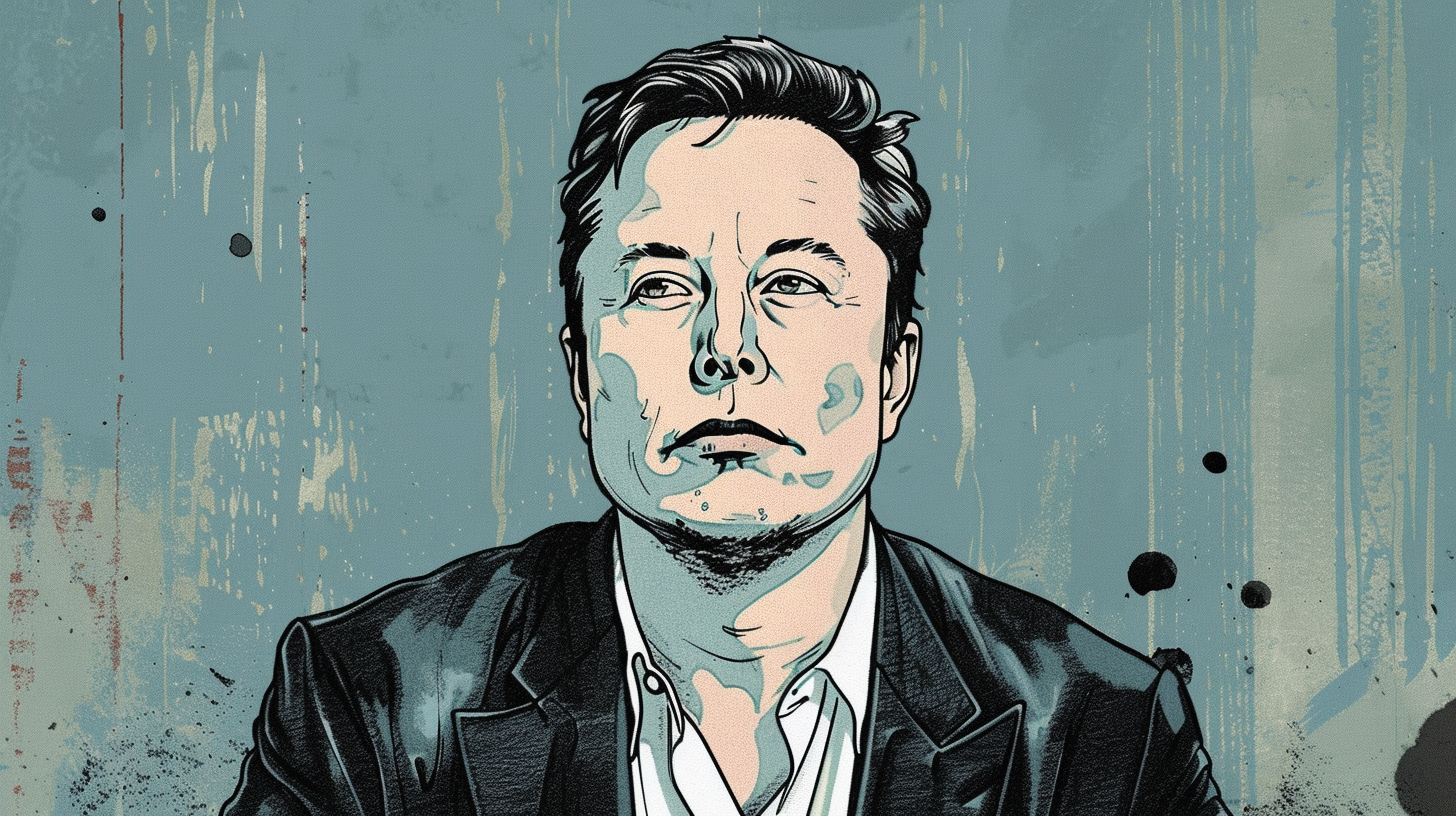Elon Musk thinks GPT-4 is AGI, sues OpenAI and wants to force it back into open development

Instead of developing open AI models for humanity as promised, OpenAI is an extension of Microsoft in the eyes of co-founder Elon Musk - and GPT-4 is already an early AGI.
Tech entrepreneur Elon Musk is suing ChatGPT developer OpenAI for what he says is a breach of the agreement he made with CEO Sam Altman and President Greg Brockmann when the company was founded. OpenAI was supposed to be an open and non-profit antithesis to the commercial and closed Google, but does not live up to this claim. Instead of developing open technologies for the benefit of humanity as a whole, OpenAI is now a division under the leadership of Microsoft, according to Musk.
According to the complaint, GPT-4 from the year 2023 is not only good at reasoning but even better than the average human. Although GPT-4 performs well in many cases - and even beats humans in some - other benchmarks such as GAIA show that reasoning is its weakness. The complaint also criticizes the fact that there are no scientific publications by OpenAI that shed light on the design of GPT-4, only press releases "boasting about its performance."
The central passage of the document follows shortly after: "Furthermore, on information and belief, GPT-4 is an AGI algorithm, and hence expressly outside the scope of Microsoft’s September 2020 exclusive license with OpenAI."
The first part uses the phrase "on information and belief" which refers to a statement that is not first-hand, but "based on secondhand information that the declarant believes is true." It is commonly used in such complaints and protects Musk from accusations of perjury.
Whether GPT-4 is indeed an AGI - and what that is - would likely be left to a jury in a potential trial. According to a classification by Google DeepMind, GPT-4 is at the first of five possible AGI levels. The company classifies GPT-4 as an Emerging AGI.
The second part of the central passage focuses on the collaboration with Microsoft and its consequences: GPT-4 is now a "a de facto Microsoft proprietary algorithm, which it has integrated into its Office software suite." Since GPT-4 is AGI, according to Musk, it is far outside the September 2020 framework, which only covered "pre-AGI" models.
Altman had to leave OpenAI
The episode from November 2023 also plays a role here, when CEO Sam Altman had a vote of no confidence from the board and had to leave the company for a short time. It ended with Altman returning as CEO and putting together a new board. Musk criticized the board for lacking "substantial AI expertise" and being ill-equipped to make an independent decision on whether and when OpenAI had achieved AGI - in violation of the contractual framework agreed with Microsoft.
After GPT-4, OpenAI developed Q* (Q-Star) with an "even stronger claim to AGI". Reports about this appeared in the context of Altman's firing and speculation that the CEO had hidden the development from the board. This was later denied by board members. Exact background information is still missing, and Musk only refers to the Reuters reports.
Musk wants his lawsuit to ensure that OpenAI returns to its "long tradition" of making its AI research available to the public. In addition, the court should resolve the difficult question of whether GPT-4, Q*, or any other possible next major model from OpenAI meets the requirements of an AGI and would therefore be outside the scope of the agreement with Microsoft. Altman has made it clear in the past that OpenAI will not release future models as open source.
Not a word about xAI
Elon Musk has had a complicated relationship with OpenAI for years. He was one of its co-founders in 2015, and for a long time was its largest financial backer. However, he stepped down from the board in 2018, officially to avoid conflicts of interest with his AI research at Tesla. In the years following his resignation, Musk repeatedly criticized the development of OpenAI, particularly concerning the safety of the AI models being developed.
In 2023, he founded xAI, which is not mentioned in the lawsuit, a counterpart to OpenAI, intending to create a super-intelligent AI system capable of solving complex scientific and mathematical problems. So far, however, his language model Grok is more on the level of GPT-3.5. There is also no scientific paper for Grok yet, nor is the model available as open source.
Musk is not the only one taking legal action against OpenAI. Regulators in the EU and the US are investigating Microsoft's recent investment in the company and whether it constitutes a takeover. CEO Altman is also under scrutiny for allegedly misleading investors. Media companies are also giving the developer of ChatGPT a hard time for possible copyright infringement.
AI News Without the Hype – Curated by Humans
As a THE DECODER subscriber, you get ad-free reading, our weekly AI newsletter, the exclusive "AI Radar" Frontier Report 6× per year, access to comments, and our complete archive.
Subscribe nowAI news without the hype
Curated by humans.
- Over 20 percent launch discount.
- Read without distractions – no Google ads.
- Access to comments and community discussions.
- Weekly AI newsletter.
- 6 times a year: “AI Radar” – deep dives on key AI topics.
- Up to 25 % off on KI Pro online events.
- Access to our full ten-year archive.
- Get the latest AI news from The Decoder.